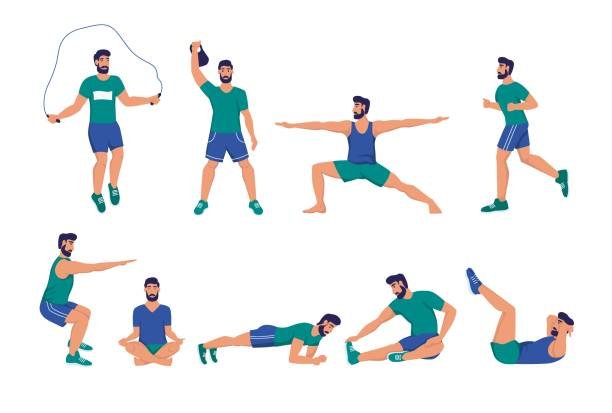Skip your gym and do these 6 body-weight exercises at home

You might have heard that strengthening exercises most benefit your muscular and skeletal health, but they could have two other big perks: helping you prevent disease and live longer.
Combining 30 to 60 minutes of strengthening exercises with any amount of aerobic activity enhanced the benefit, resulting in a 40% lower risk of premature death, a 46% lower incidence of heart disease and a 28% lower chance of dying from cancer. The research is also the first to examine long-term links between muscle-strengthening activities and diabetes risk, the authors said.

"Many previous studies showed a favorable influence of muscle-strengthening exercises on noncommunicable diseases and early death risk," said the study's first author Haruki Momma, a lecturer in the department of medicine and science in sports and exercise at Tohoku University in Japan, via email. "We could expect our findings to some extent because this study was planned to integrate previous findings."
The new research is an analysis of 16 prior studies, which amounted to a pool of data from nearly 480,000 study participants. They were between 18 and 98 years old, and most were based in the United States. Participants either self-reported their engagement in muscle-strengthening activities or answered questions during interviews.
"The study methods are sound and the findings are important, but not surprising to me," said Dr. William Roberts, a professor in the department of family medicine and community health at the University of Minnesota, via email. He wasn't involved in the study. Thirty to "60 minutes per week sticks out as a doable amount for most people and makes me feel good about the 5 to 15 minutes of strength exercises I do every morning."
The findings are "great news for people who are active and greater news for those who are inactive as they can improve their health with a small time investment," added Roberts, who is a past president and current fellow of the American College of Sports Medicine. "That said, people should start slow and build slowly to avoid the pain of too much activity too soon."
How strength manages health risks
The new research didn't explore why strength training is so effective in lowering risk of early death and certain diseases. But this type of exercise is important for reducing body fat and building lean muscle, which can help with balance, posture and regulating cholesterol levels, said Dr. Nieca Goldberg, the medical director of Atria New York City and clinical associate professor of medicine at New York University's Grossman School of Medicine. Goldberg wasn't involved in the study.
"We know that individuals with obesity are at increased risk for cardiovascular disease, glucose intolerance and some cancers, so improving that (health) profile is beneficial," Goldberg said. Additionally, "people who participate in regular activity ... may also have a healthier outlook and have other healthy lifestyles."
The stronger benefit from mixing aerobics with strengthening exercises could be because the two "appear to work together and help each other move toward better outcomes," Roberts said. "A balanced program of strength and aerobic activity is probably best and probably more closely mimics the activities of our ancestors, which helped determine our current gene sets."
Overall, the main takeaway is to get active and stay active with an exercise program you like and can stick with, Roberts and Goldberg said.
"You do not need to train for the marathon to be healthy and improve your health," Roberts added via email. "A combination of 5-10 minutes of strength exercise and 30 minutes of walking most days of the week will produce great health benefits across the population."